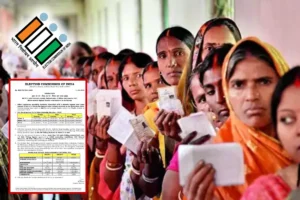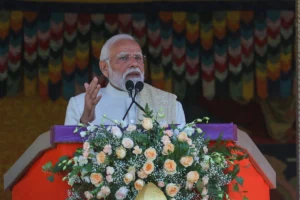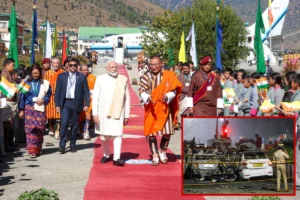
The Supreme Court opted not to intervene in the demolition drive initiated by the Gujarat administration in Gir-Somnath district on Friday, despite calls for a stay on the operation.
During the proceedings, Solicitor General Tushar Mehta informed the bench, consisting of Justices BR Gavai and KV Viswanathan, that several authorities had approached for an interim injunction, yet none had granted relief.
He added that the Gujarat High Court had conducted a thorough hearing on Thursday, ultimately refusing to issue any status quo order.
The apex court’s session addressed a petition filed by the Samast Patni Muslim Jamat, which accused state officials of contempt for proceeding with demolitions despite an existing Supreme Court directive that halted demolition activities nationwide, except with prior approval.
“We will not issue notice, you only file your reply,” the justices instructed Mehta, representing the Gujarat government.
While the court declined to impose a status quo order at this time, it warned that it would consider punitive action against the responsible authorities if it later found evidence of demolitions executed in defiance of its directives.
The court has scheduled a follow-up hearing in the case for 16 October.
Petition Claims Demolition of Historical Muslim Sites Without Notice
The petition, lodged by advocate Anas Tanwir, claimed that the demolitions of historical Muslim sites, including mosques, eidgahs, and tombs, occurred on 28 September without any notice or opportunity for affected parties to present their case.
The plea emphasized the significance of Haji Mangroli Shah Baba’s tomb, asserting that authorities recognized the site since the days of the State of Junagadh, with ownership issues resolved in a legal resolution overseen by Colonel JM Hunter in 1903.
The document argued that the Muslim community received the 57-acre land, asserting its sacred status as a burial ground and religious site.
The state’s demolition efforts, which began on the evening of September 27, targeted unauthorized constructions near the iconic Somnath temple, part of the broader Somnath Development Project.
District officials indicated that illegal construction occurred on land owned by the Shree Somnath Trust, which collaborates with the Gujarat government to manage temple operations.
Earlier this year, Gujarat authorities had launched a major anti-encroachment initiative aimed at clearing approximately three hectares (7.4 acres) of illegally occupied land adjacent to the Somnath temple.
The temple, located in Prabhas Patan near Veraval on the Arabian Sea coast, is one of the twelve jyotirlinga shrines dedicated to Lord Shiva, making it a vital pilgrimage destination and cultural landmark.
Also Read: Supreme Court Orders SIT Probe Into Tirupati Laddus Controversy
To read more such news, download Bharat Express news apps






















